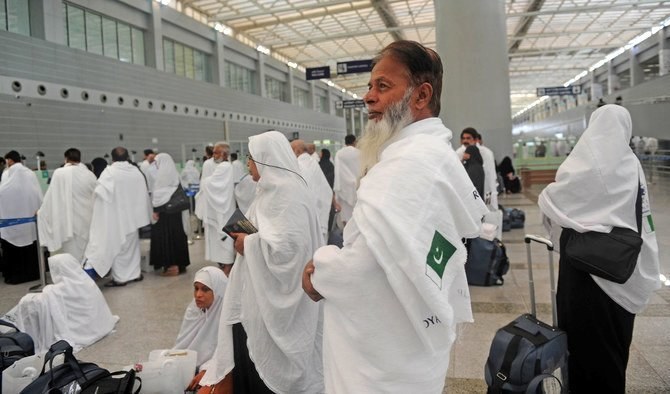ISLAMABAD: Pakistan topped the list of countries that sent maximum number of Umrah pilgrims to Saudi Arabia since the beginning of the season on August 31 until December 26, 2019, according to official statistics released by the Kingdom on Friday.
The index showed that 495,270 Pakistanis performed their Umrah during the period, followed by 443,879 Indonesians and 262,887 Indians. Other countries on the list included Malaysia, Egypt, Algeria, Turkey, Bangladesh, the United Arab Emirates and Jordan.
Pakistan’s Religious Affairs Ministry Spokesman Imran Siddiqui told Arab News on Saturday that the Saudi government had always won the hearts of the Pakistani pilgrims through exceptional hospitality.
“This number of 495,270 was achieved in four months, showing the association and passionate love of our people with the two holy mosques,” he said. “Pakistan was the number one country with more than 1.7 million people performing Umrah last year. The trend has continued this year as well, and more people are likely to visit the Kingdom to undertake this spiritual journey in the coming months, especially during Ramadan.”
The spokesperson said that one of the reasons behind the growing number of pilgrims from Pakistan was the strengthening of bilateral relations between the two countries, adding that Pakistan’s Prime Minister Imran Khan and Saudi Arabia Crown Prince Mohammed bin Salman had brought the two states closer together.
“The Saudi crown prince has given Pakistani pilgrims special facilities, such as the Makkah Route, and such changes have contributed to the increased number of pilgrims,” he said, noting that the Saudis had also digitized everything like visa for Umrah.
“This has reduced the cases of frauds committed by travel agents, especially when it comes to issues like accommodation. Now everything is electronic and they have to show hotel accommodation for visa. The changes have been made under Vision 2030, making things easier for the pilgrims,” Siddiqui said.
The Vision 2030 reforms plan aims to attract more than 30 million Umrah pilgrims and provide them excellent services. Last year, the Saudi Hajj and Umrah Ministry launched a weekly indicator that helps the authorities track the number of pilgrims visiting the Kingdom to enrich their spiritual experience further.












